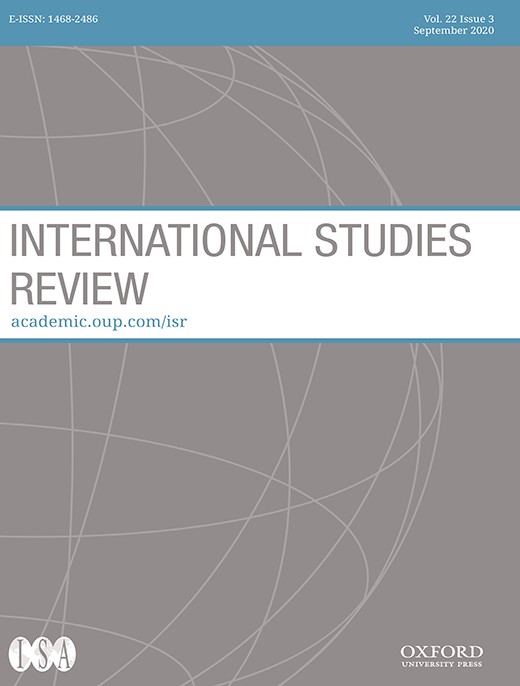-
Views
-
Cite
Cite
Rodger A Payne, Grappling with Dr. Strangelove’s “Wargasm” Fantasy, International Studies Review, Volume 22, Issue 3, September 2020, Pages 464–481, https://doi.org/10.1093/isr/viz018
Close - Share Icon Share
Abstract
Dr. Strangelove continues to be viewed as one of the most acclaimed films of all-time. Likewise, international relations (IR) experts commonly list the film among the most essential IR-themed movies. The IR scholars who discuss Dr. Strangelove as a text or recommend it for courses generally claim that it can be used to explain nuclear deterrence, the security dilemma, mutually assured destruction, Cold War competition, and various other traditional serious concerns of the field. They also recognize that the satirical film is critical of nuclear strategy. This article considers Dr. Strangelove’s sexual subtext, involving important metaphors and symbols that IR scholars characteristically ignore. Yet, for decades, film critics and scholars from other disciplines have identified and emphasized the importance of the film's comedic “sexual framework” and concluding “wargasm.” Director Stanley Kubrick even acknowledged these key elements in private correspondence. The film suggests that the national security establishment's masculine view of the utility of nuclear weapons and deterrence are comparable to absurd male sexual fantasies. Feminist IR scholars frequently note that mainstream scholars largely ignore their critique of masculine views of the discipline and nuclear strategy. The article concludes that scholars in the field should both prioritize Dr. Strangelove’s sexual subtext and rely upon feminist contributions to help understand those elements.





